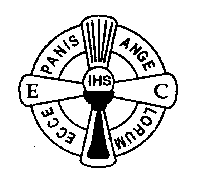Excerpts
From the Manual of the
Eucharistic Crusade of the Apostleship of Prayer
Published
in 1962 by the Central Office of the Eucharistic Crusade, Rome

Educating the Youth to Live the Mass
TEACHING CHILDREN TO PRAY:
2. STAGES IN THE TEACHING OF PRAYER.
Third Stage (continued):
This stage covers the time that immediately precedes puberty or which constitutes its beginning. The age at which this comes differs according to regions and persons. The time that precedes maturity or which is its beginning is accompanied by changes in the mind and the body of the children which affects their whole character. Considering only the changes that touch on the spiritual life and especially on prayer, those of special note are: levity, wandering of the mind, the desire for freedom, neglect of obligations, a certain slackening of good habits - though this may not be sinful.
These dispositions without doubt can be a serious impediment to the interior life and to prayer. For generally, unless one is helped by a special grace of the Holy Spirit, all that concerns the spiritual life requires work and effort. Therefore Directors must take every precaution lest at this age the children go down hill, as it were, and make light of and perhaps lose entirely what they had previously acquired in the spiritual life.
1°. To hold on to what has been acquired.: This means, as regards the practice of prayer, to keep order in the spiritual life, to continue regularly with the usual morning and night prayers, to say grace before and after meals, to be present at Mass and to receive Communion frequently, to continue to pray in one's own words, freely and from the heart. At the same time it must be insisted upon that all these be done not mechanically, but with attention and devotion, lest prayer should become a merely external exercise, something that the lips do while the heart is far from God.
2°. To develop and perfect what has been acquired.: It should be noted that, especially at this age, when boys (and girls to a lesser extent) feel that they are growing up, is education in internal and external reverence towards God, the saints, and all that concerns religion. This reverence, which must be founded on the knowledge of the love and goodness of God, cannot be inculcated enough.
Therefore it must continually be brought home to them, both by means which favour internal conviction and by a certain firm external discipline, that they should perform all sacred actions such as the sign of the cross, genuflections, standing and sitting at Mass, coming up to receive Communion, etc. and especially the recitation of all prayers and the singing of hymns - with grace, decorum, and devotion. Even practice sessions, whether in or outside church, should be conducted with dignity and reverence. In all of this care must be had that external reverence is linked with true internal reverence, otherwise we are merely fostering false piety and hypocrisy.
There is no excuse for children, and especially Crusaders, drooping over the bench during Mass and other services.
Home | Contact
| Mass Centres | Schools
| Pilgrimages | Retreats
|
Precious Blood Residence
District Superior's
Ltrs | Superor General's
Ltrs | Various
Newsletter | Eucharistic
Crusade | Rosary Clarion | For
the Clergy | Coast to Coast |
Saints | Links